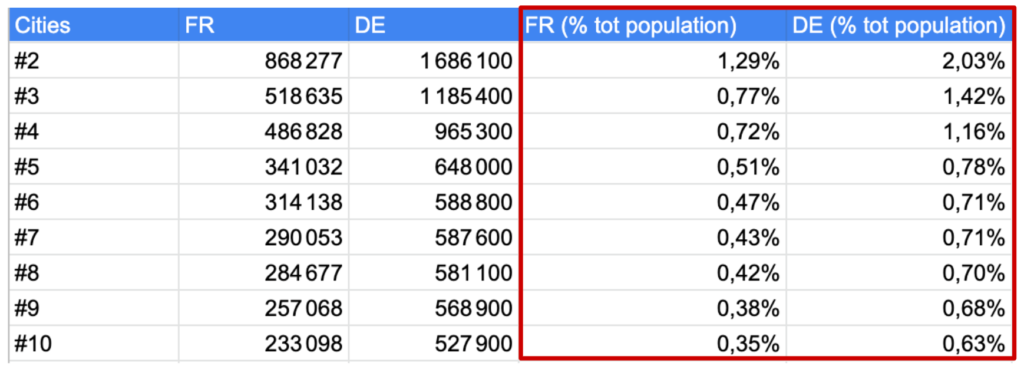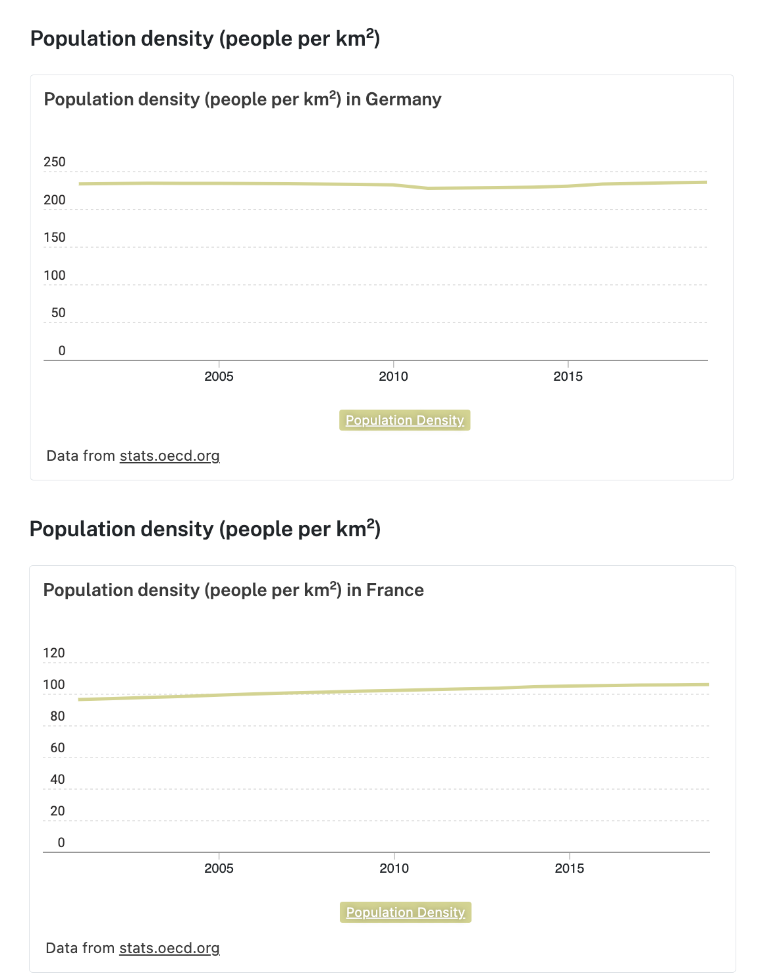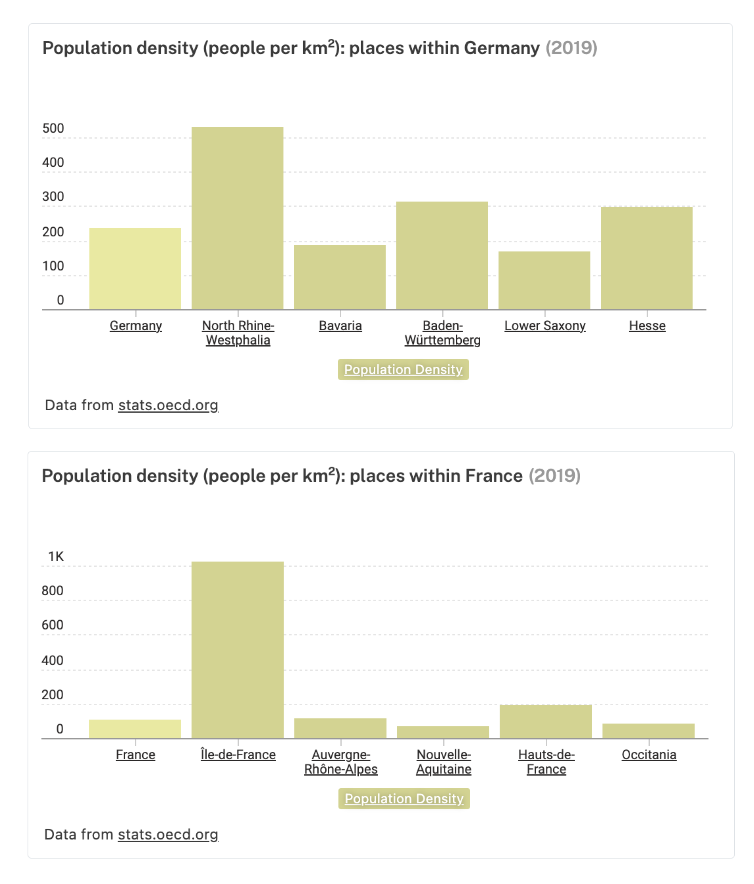Hint : It’s not only about the post-war policies.
So why is it with German cities that makes them so good when it comes to bike commuting ?

It’s all about dense-city (…)
Germany’s structure as a federal state has some inconveniences. Much more paperwork can be needed when you have lived across states and you decide to move to France, for example (completely hypothetical scenario).
But it has a lot of advantages. Among them, the fact that secondary cities are not, actually, that secondary, allows for certain redistribution of power.
On the opposite side of the spectrum, France, for example, has taken away a lot of interest in its secondary city to make the Paris area more attractive. Universities, jobs, transportation : for most people in their 20s, living in Paris is an obvious choice.
In Germany, a lot of students will move from a secondary city to another, not only because the university/school has a very good reputation there, but also because they can see themselves stay in the city and get a job.
As a consequence, the proportion of people living in secondary cities is much higher than in France, as shown in the table below :

That better repartition of the global population reflects when comparing density between countries, and at the regional level.
Germany is, on average, more than 2.5x dense than France:

But when comparing region by region, it’s clear that Germany has done a better job at creating attractive clusters outside the first city area.
In France, Paris Greater Area is 14 times more dense than the average. For comparison, in Germany, the most dense region is only 2 times more dense than the country overall.

And what better than well-sized cities to make you want to use your bike ?
Traffic is bad enough to make you want to ride, but you still have enough space to feel like you’re actually outside exercising.
Distances are long enough that walking is not an option, but not so much that you would only consider “passive” solutions (like the bus or the tram).
And adapting the space to accommodate cyclists is still pretty easy.
It’s the ideal scenario.
As a consequence, the numbers talk for themselves: When in France, biking represents between 3 and 4% of all transportations, that number rises up to 13-15% in Germany.
I hear you: that makes sense if the density is so much higher. In France, we have to take the train or other public transportation to go anywhere.
If you bike to work, you’ll bike everywhere
In that case, let’s focus on biking to work. Surprisingly enough, German people live further from their job than the average French worker: 17km for the former and 10-13km for the latter (depending on the source). Intuitively, that makes a strong case for a higher use of bikes in all those french commutes.
Here again though, the results are more or less the same: 3% of all transportation to work is made on a bike in France, compared to 13% in Germany.
As Germans are now getting more and more on E-bikes for their commute, it makes absolutely no doubt that those figures will increase.
Why does Paris still have a long way to go?
The question we could ask ourselves then is quite obvious: why, then, isn’t the Paris Area a champion in bike commuting, with that level of density?
The answer will deserve a more in-depth post another time, but here is the short answer :
- Lack of infrastructure (Paris was designed in the 70s to drive, not to ride)
- By comparison, a pretty efficient and dense public transportation system (metro, train, bus, tramway…)
- There’s a “sweet spot” in terms of density that makes it hard to bike without major infrastructures (if you don’t have a bike lane, you’ll also get stuck in traffic on your bike)
Hopefully, the post-covid trend should accelerate a most needed decentralization in many countries, in Europe and all around the world.
Sources:
- https://ecf.com/cycling-data/germany?field_cd_country_region_tid=1610
- https://ecf.com/cycling-data/france?field_cd_country_region_tid=1610
- https://datacommons.org/place/country/DEU?category=Demographics&hl=en
- https://datacommons.org/place/country/FRA?category=Demographics
- https://www.postbank.de/themenwelten/beruf-vorsorge/artikel_immer-laengere-arbeitswege-fuer-pendler.html
- https://www.insee.fr/fr/statistiques/5016698
- https://www.statistiques.developpement-durable.gouv.fr/resultats-detailles-de-lenquete-mobilite-des-personnes-de-2019
- http://www.mobilitaet-in-deutschland.de/pdf/MiD2017_Analyse_zum_Rad_und_Fu%C3%9Fverkehr.pdf
- https://www.sciencedirect.com/science/article/pii/S259019821930017X
